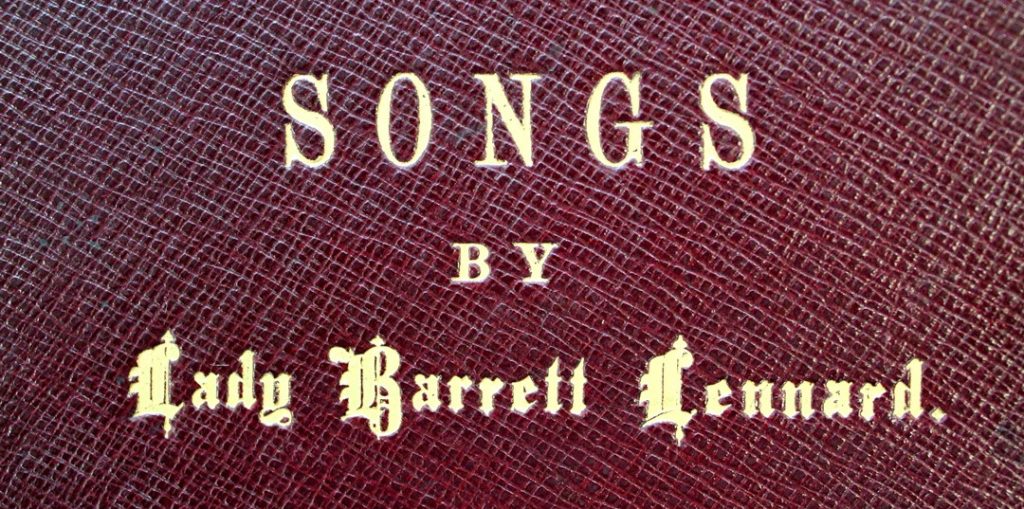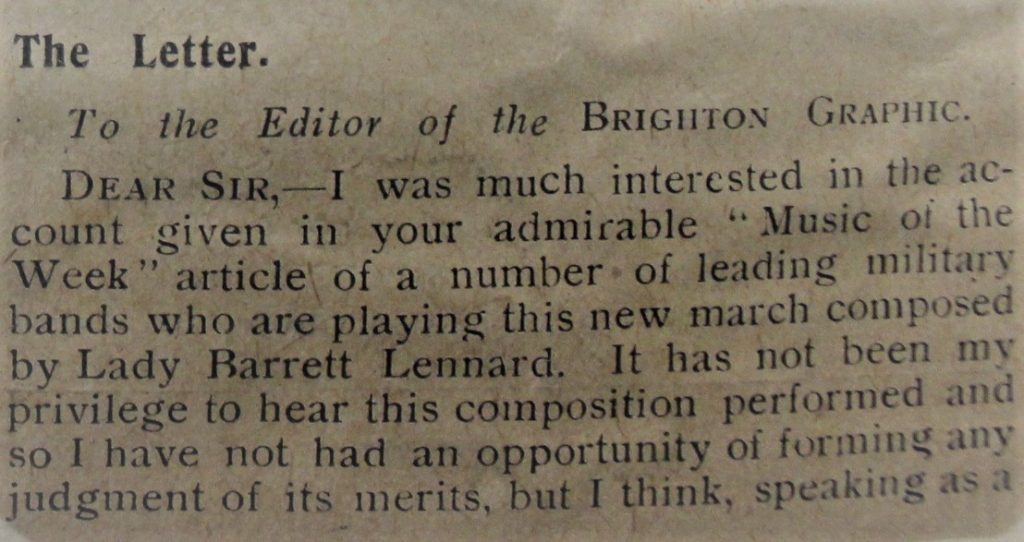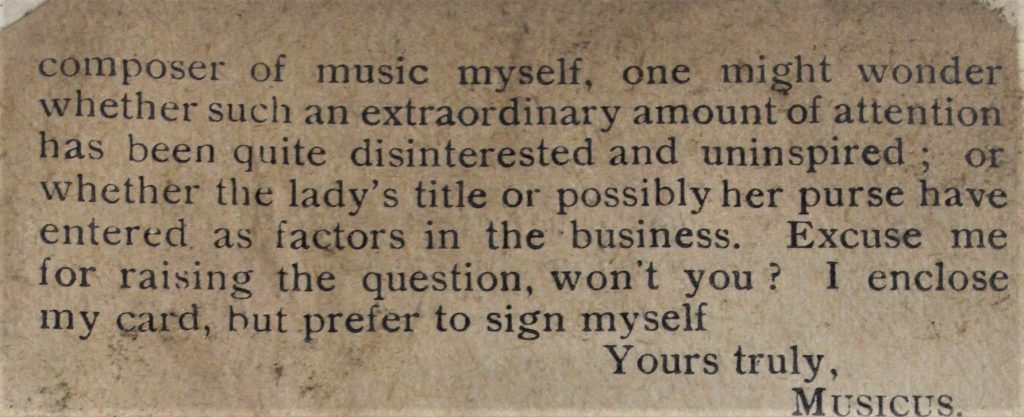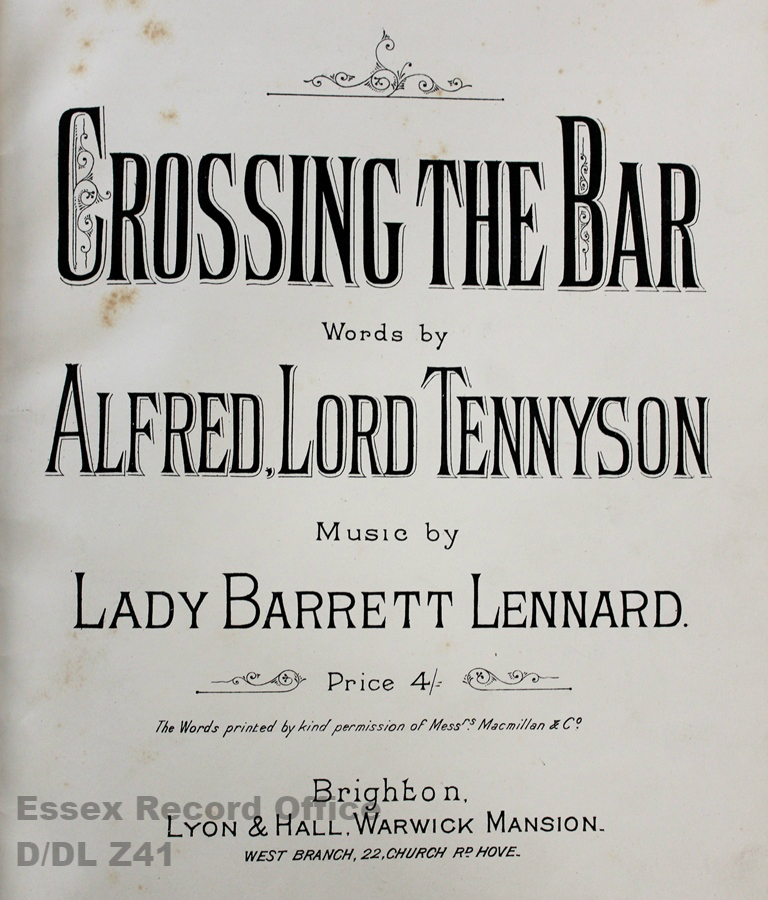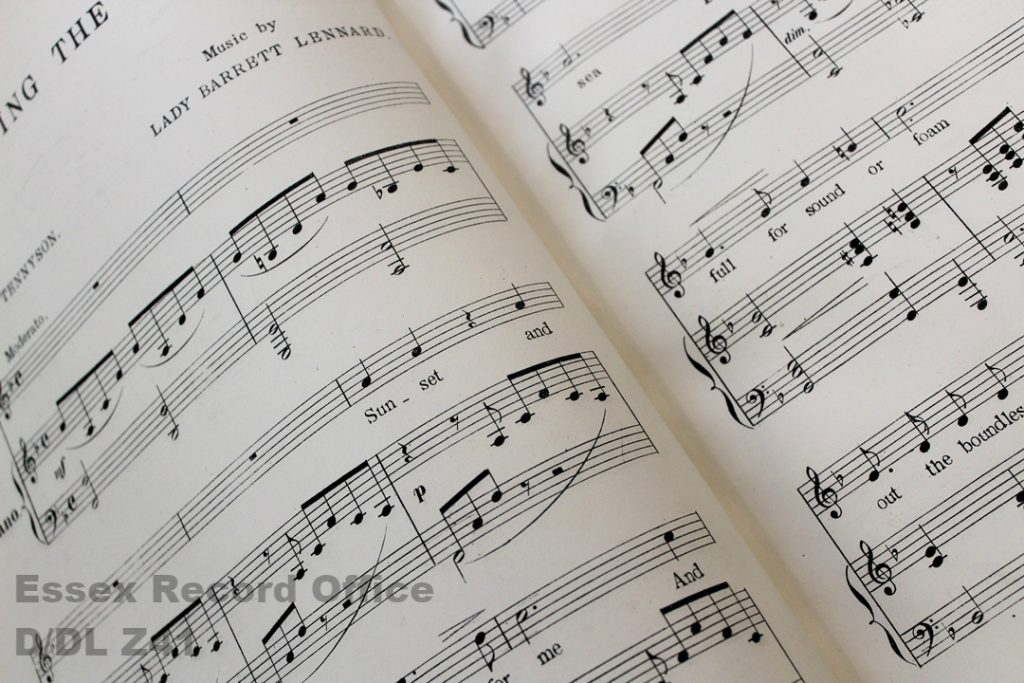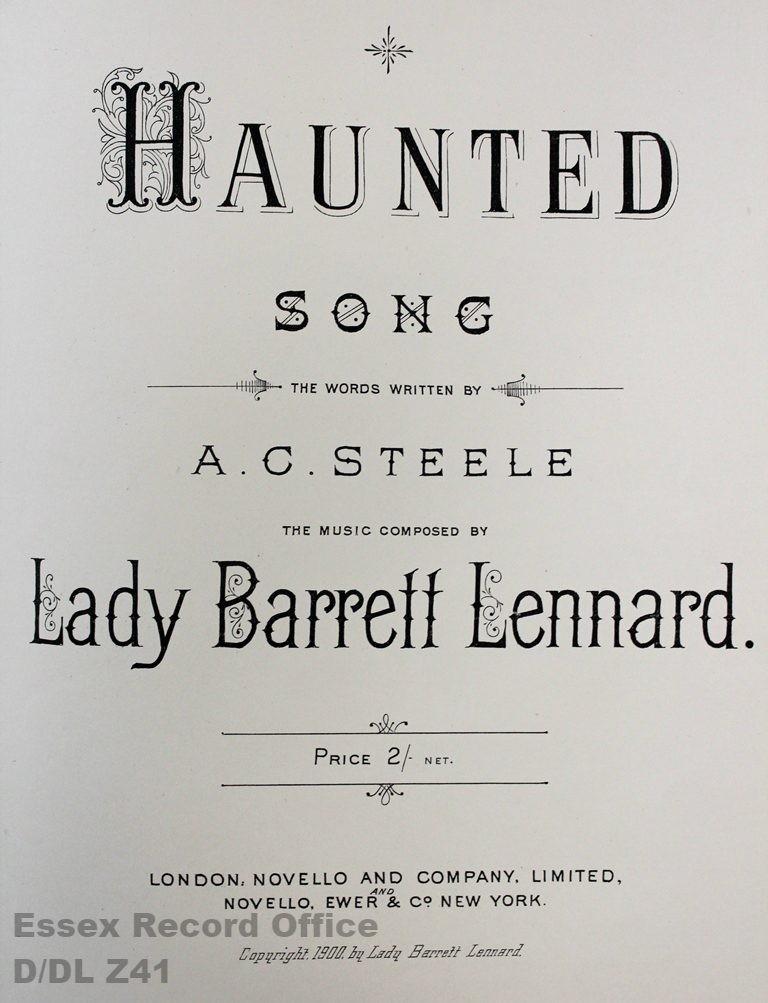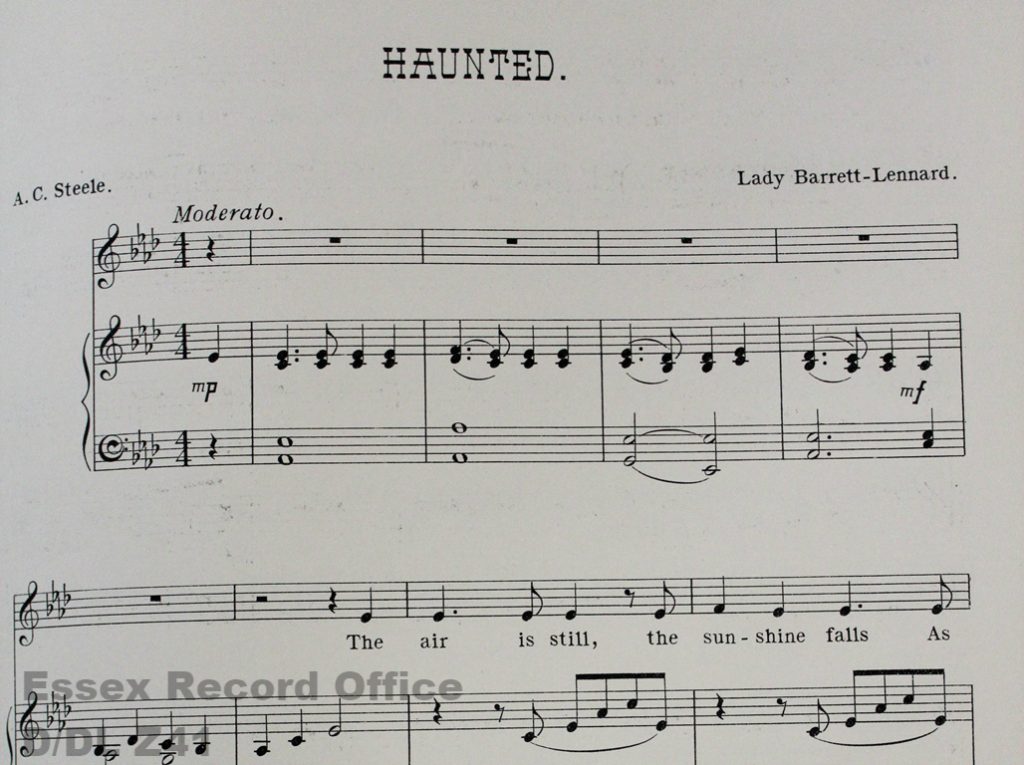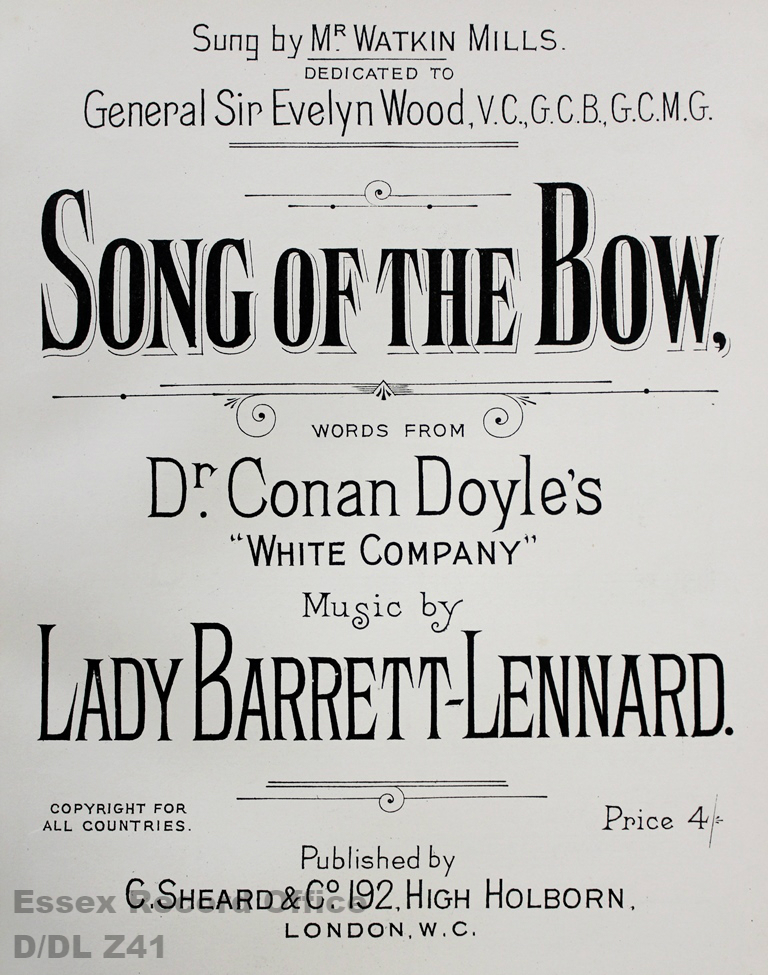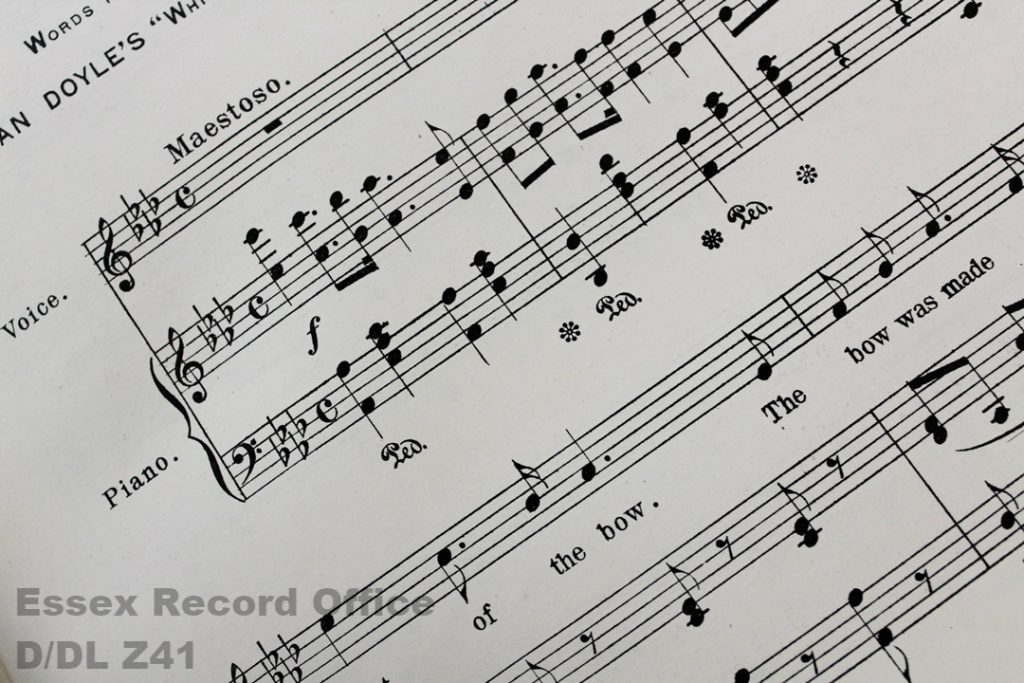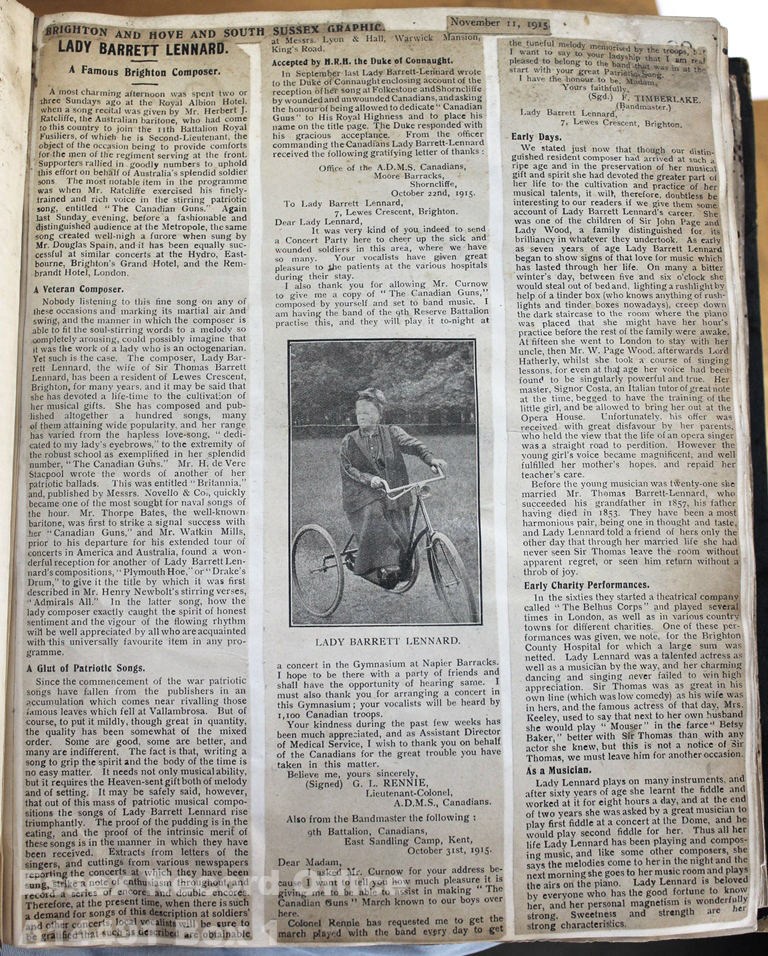
This newspaper article, from the Brighton and Hove and South Sussex Graphic, was found pasted inside an early 20th century scrapbook belonging to the Bradhurst family of Rivenhall Place (specifically to Minna Evangeline Wood and Augustus Maunsell Bradhurst). It, along with other articles and letters, gives us an insight into an interesting musical career.
Immediately, your eye is caught by the flamboyant photograph in the centre of the page: an elderly woman riding a tricycle with free abandon. What wonderful woman could this be? You ask, and the answer is right there: Lady Barrett-Lennard, A Famous Brighton Composer. Not only is this an elderly woman, but a high class elderly woman; certainly not the photograph one would expect of her!
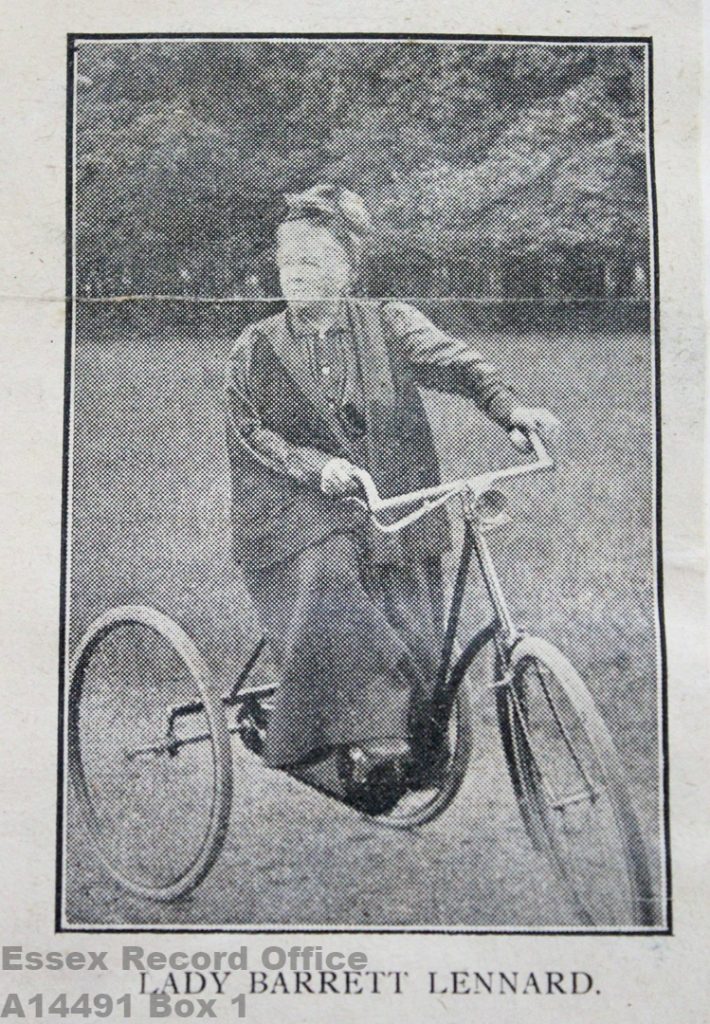
Lady Emma Barrett-Lennard was baptised as Emma Wood on February 17th 1832 in London. She was baptised by her father, Sir John Page Wood, a rector. Her mother was Lady Emma Caroline Wood. She became a Barrett-Lennard on January 18th 1853 when she married Thomas Barrett-Lennard, who ascended to the baronetcy upon the death of his grandfather in 1857. Her death came, in Brighton, on June 18th 1916; less than a year after this article was written.
The main reason for the article? Her success as the composer of ‘Canadian Guns’, a patriotic song which had become a popular song to perform at events.
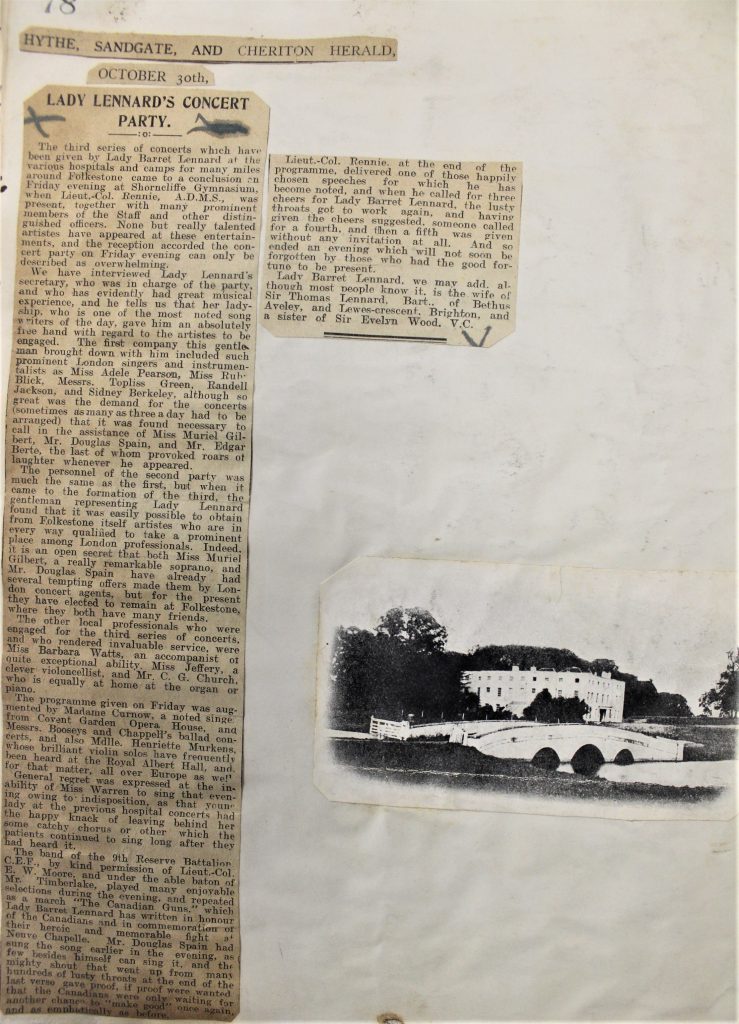
Another article, this one from the Hythe, Sandgate and Cheriton Herald, praises a particular performance of Canadian Guns given at “Lady Lennard’s Concert Party”. This concert was the third of a series given by Lady Barrett-Lennard at different hospitals in the Folkestone area.
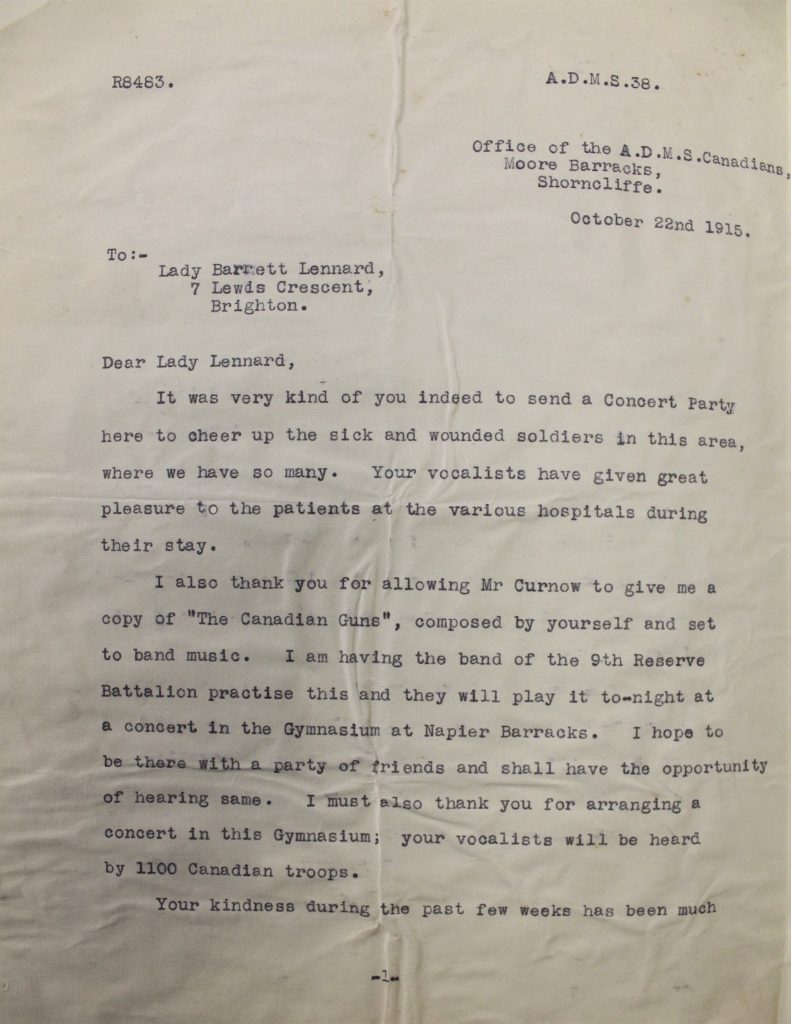
Alongside this article, a letter was also pasted into the scrapbook. The letter was from Lt. Col. L. G. Rennie, written to thank Lady Barrett-Lennard for her for the work her concert had done in cheering up sick and wounded soldiers.
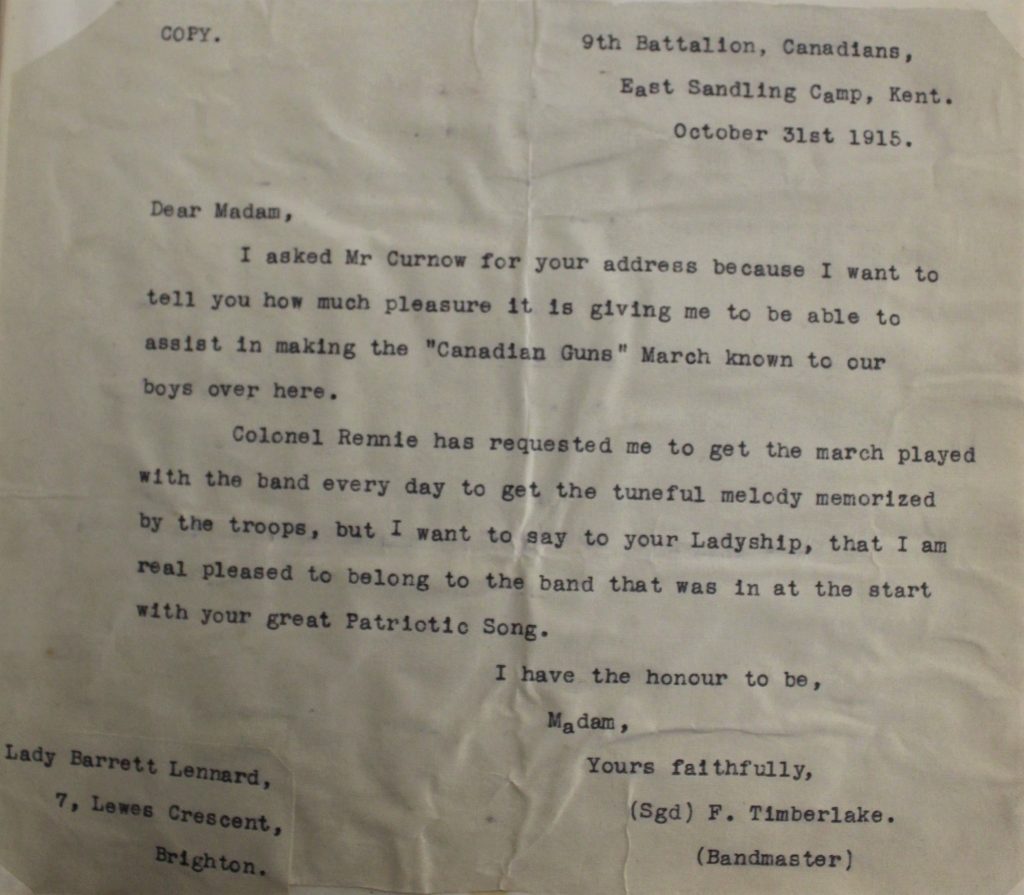
A second letter was written from Sgd. F. Timberlake (bandmaster) thanking her for making Canadian Guns accessible to him and assuring her that he will “get the march played with the band every day to get the tuneful melody memorised by the troops”.
If this isn’t sufficient proof of Lady Barret-Lennard’s success as a musical composer, then the final thing that is need to cement this claim is the following article which seems to exist purely to sing her praises and demand more songs. Published by ‘The Bystander’ on November 10th 1915, the article is titled: “An Octogenarian Song Composer: The Elusive Personality of the Writer of Plymouth Hoe and Canadian Guns”. The writer of the article begins by marvelling at her age and gender (obviously two limitations which make her success all the more remarkable…) and blames Lady Barrett-Lennard’s modesty for the lack of success seen by her forty or so other songs.
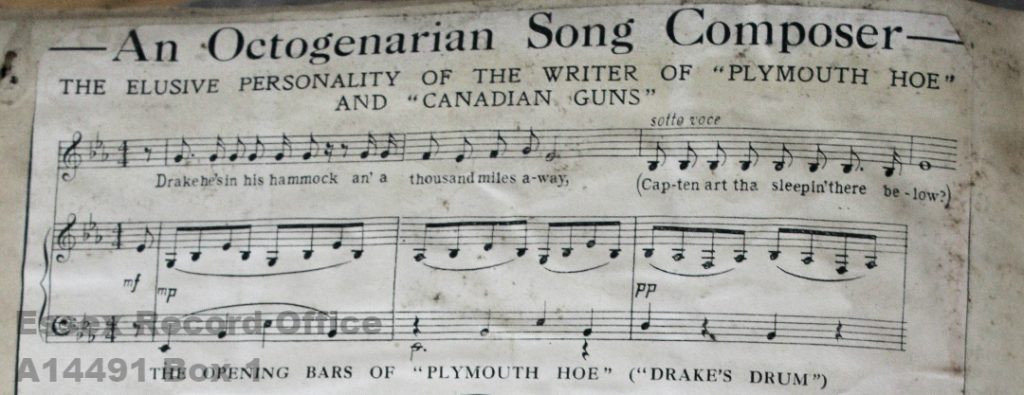
The article suggests that her other popular song, ‘Plymouth Hoe’, was “rescued” from being “pigeon-holed” at her publishers office. According to this article it was only because she heard that people thought ‘Plymouth Hoe’ was her only song that she allowed for ‘Canadian Guns’ to be published and “not pigeon-holed”. The article ends with the hope that their writing has successfully persuaded Lady Barrett-Lennard to write more songs, or her publishers to “rescue” more of her songs from their pigeon-holes.
Of course the true proof of fame is the critics! And Lady Barrett-Lennard was not without her own critics. One critic is given a particularly amusing spotlight in the Brighton Graphic and South Coast Illustrated News in an article titled: Brighton Lady Composer: Scandalous Insinuations. (‘Lady’ clearly having been underlined to emphasise the rarity of a successful female…) The article is written around a letter which has been anonymously sent to them, signed by “Musicus”, in which Lady Barrett-Lennard is accused of paying her way to success. The most amusing point of this letter seems to be that “Musicus” has never actually heard ‘Canadian Guns’ performed and yet is disparaging it regardless. The insinuation clearly being that a woman could not have created something that is actually good enough to earn such attention and success.
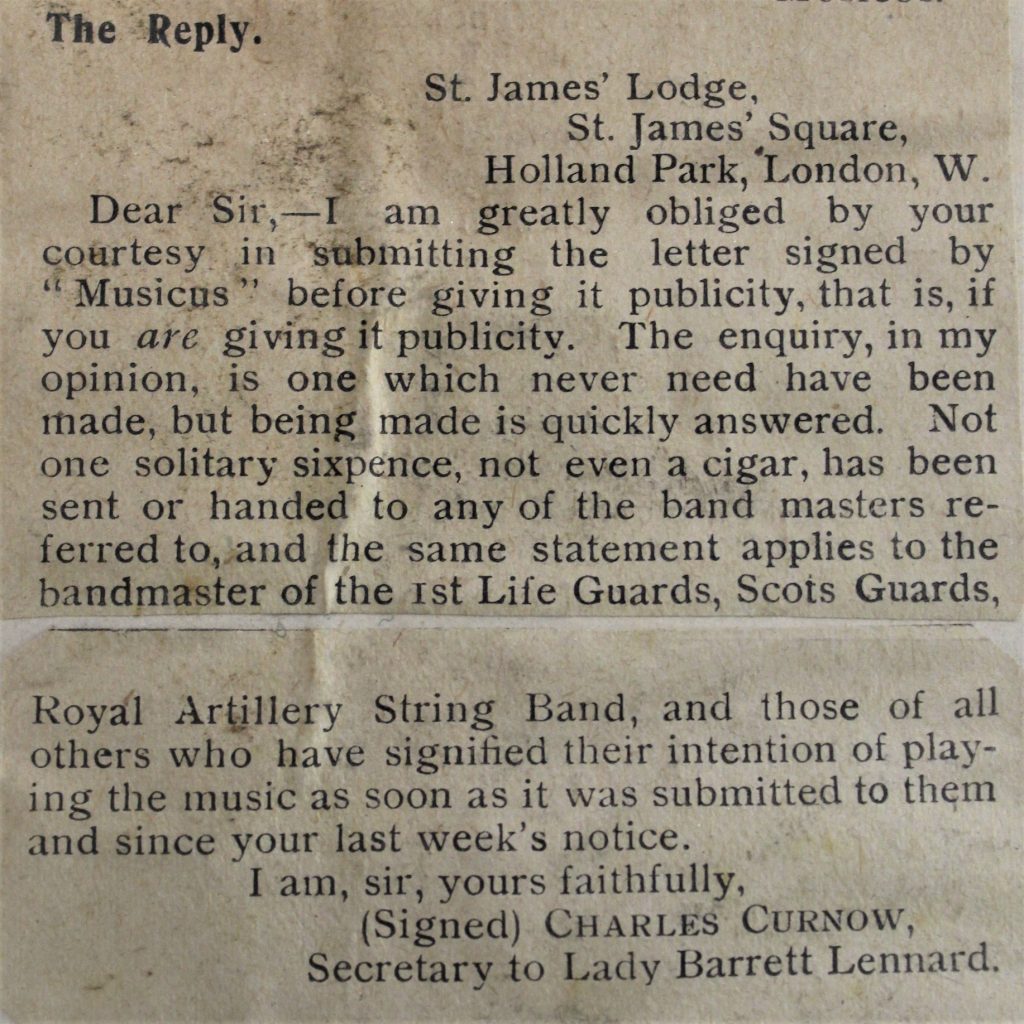
Fortunately (for Lady Barrett-Lennard and for feminists everywhere), the author of the article seems as disbelieving of these accusations as Lady Barrett-Lennard’s secretary whose withering reply has also been published alongside the article.
As well as her famous songs, ‘Canadian Guns’ and ‘Plymouth Hoe’, Lady Barrett-Lennard also composed music to accompany a variety of poems. Some of these are by known poets, whilst some appear to be written by her own
acquaintances. Many of these compositions are written to accompany poems by Lord Alfred Tennyson. We are fortunate to have a book of Lady Barrett-Lennard’s songs amongst the many documents which make up our Barrett-Lennard collection.
